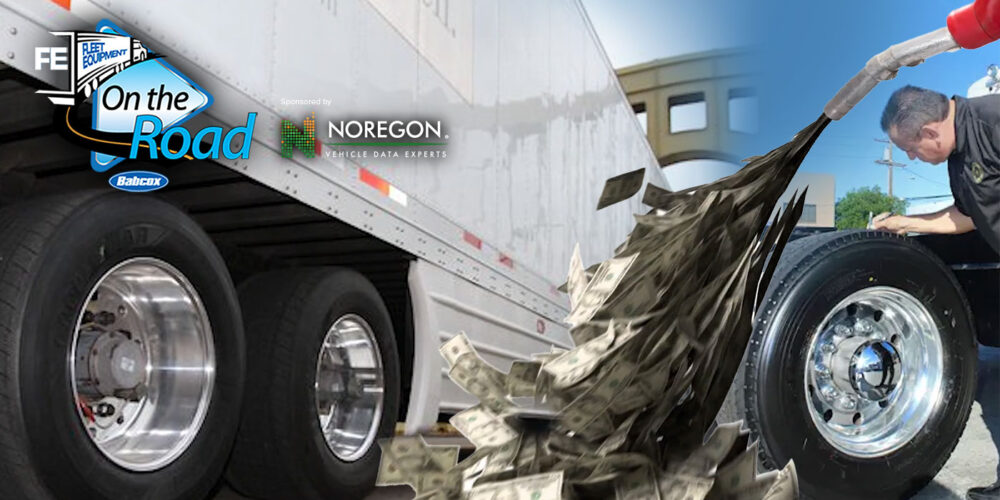Ask any fleet manager focused on service: Indulge in preventative maintenance, and it’s going to save you time and money. Managers who run a well-maintained fleet will have trucks that break down less often and save more fuel.
Click here to watch more of FE’s On the Road video series.
Here is a transcript of the video:
Here are three tips for fleet managers to help make sure fleet maintenance is being done regularly and in an effective manner.
First: Create a preventative maintenance schedule and stick to it
You can’t fix a truck while it’s driving, and taking a truck off the road is not making you any money. So setting up a schedule to stop making money every so often is painful, I get it. But you’ll thank me later when your truck is driving like a well-oiled machine.
Schedule time in advance to change fluids, change batteries or check in on the oil. If you aren’t doing your own service, look for a shop that understands the fleet business; you might be surprised at how many will be willing to do their jobs after or before business hours so you can maximize time on the road. Scheduling preventative maintenance during off-hours or during meetings will help make sure your fleet runs properly without leaving your drivers short on vehicles.
Second: Record all maintenance work and inspect vehicles daily
Records should include when the last oil change was done, the last time tires were changed and any other maintenance work. If you’re old school, there’s nothing wrong with tracking all that maintenance work manually on paper, but today there are some pretty incredible fleet management software programs that can save you time keeping track of complete and incomplete maintenance.
Now, someone should be inspecting any vehicles you’re planning on taking on the road at least once per day. This inspection should come with a checklist that asks the employee to look at and maintain things such as proper tire pressure, engine, transmission, brakes and windshield and glass condition.
This really should be a daily thing, because drivers are not always going to use the same vehicle every day and different people drive in different ways. Different drivers might recognize wear and tear that, if caught early, can mitigate an issue down the road.
And, of course, this is on top of when your typical preventative maintenance would occur. This means servicing all vehicles at a certain mileage and the number of hours the vehicle has been in operation.
Three: Change batteries and check brakes even more frequently
Listen, fleet managers need to err on the side of caution when it comes to changing batteries and checking the brakes. Many fleet managers only change a vehicle’s battery when it dies, but you can potentially save thousands of dollars in fleet management costs you change your batteries every three years even if they’re functioning.
Yeah, you can change a battery when it dies, but then you lose money while the inoperable vehicle waits around.
The same rational can be applied to brake maintenance. So have a professional come in and check the status of your brakes every three months or so. This scheduled maintenance could mean the difference between having to pay for new brake pads or having to pay to fix shot rotors and calipers.
Fleet maintenance is incredibly important, and conducting maintenance properly and frequently can be the difference between your company making money and losing money. But regular checkups can go a long way toward keeping you in the former category and away from the latter.













